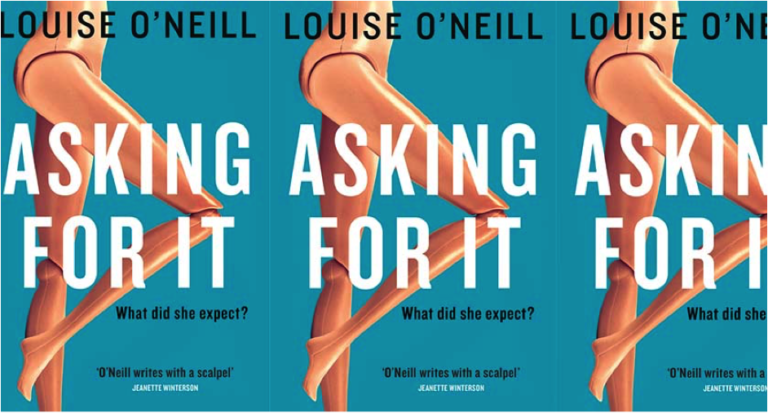By Sophia Simon-Bashall
CN: Discussion of r*pe culture and victim blaming
In the summer, I was lucky enough to hear the Irish author Louise O’Neill talk about her ground-breaking novel, Asking For It, at my local bookshop. It was an incredible evening, and Louise made some very poignant points. I feel it would be selfish of me not to share some of them.
Louise on DARKNESS IN YA:
“There’s always a big debate on whether or not my books are YA. I’ve been told that they’re too dark and bleak for YA. I mean, have these people ever been teenagers? When I was 16, I genuinely thought that Sylvia Plath was the only person who understood me.”
Louise on TELLING THE TRUTH IN FICTION:
“I set out to write the truth, to be authentic, and if that makes people uncomfortable, maybe that’s a good thing. I can understand discomfort when reading about rape, you SHOULD be uncomfortable with it. It was especially important to me in writing Asking For It because there is such a culture of shame that silences victims. It’s ‘what were you doing?’, ‘what were you wearing?’, ‘how much did you have to drink?’, ‘why did you go back to his house?’. You just hear ‘your fault’, ‘your fault’, ‘your fault’, ‘your fault’. Victims are being made to feel ashamed, but that’s wrong. It’s the rapists, they’re the ones who should feel ashamed.”
Louise on THE RECEPTION OF CHARACTERS:
“It’s interesting to me that Emma (Asking For It protagonist) is described as ‘unlikable’, because who says she has to be likable? That was never my goal. Male characters are never treated in the same way – the male antihero is well established in literature, but with women it’s shocking. People are shocked by women who are not ‘nice’. But female characters need to be compelling, not necessarily ‘likable’.”
Louise on ENDINGS (*spoiler alert!*):
“I definitely resist neat endings, I don’t like them and I don’t write them because they don’t feel real, they are not true to life.
Of course I wanted Emma to take the case further, but it doesn’t matter what I wanted her to do. It’s about what she would do. Also, my research showed that conviction rates with these cases are very low, especially in Ireland. I wanted the book to reflect the reality in which she lived. That’s why it ends the way it does.”
(you can pick up Asking For It here)
Related items
